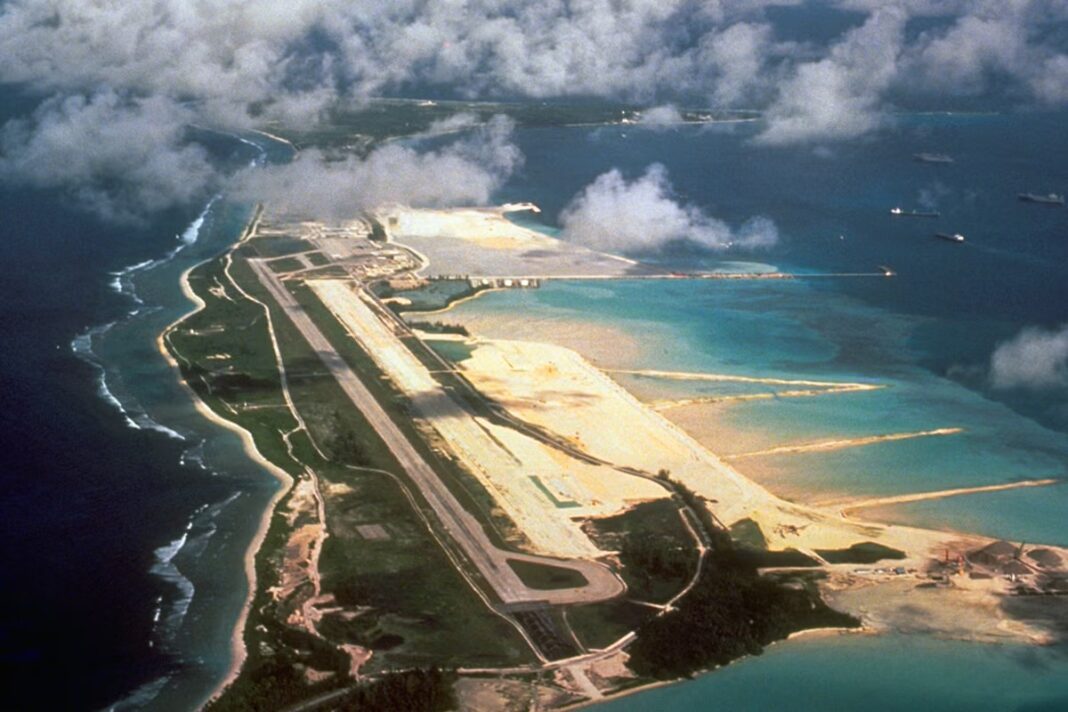In a historic agreement, Britain has agreed to cede sovereignty of the Chagos Islands to Mauritius, ensuring the future of the strategic U.S.-UK military base on Diego Garcia. The deal, announced on Thursday, promises to protect the base’s operation for nearly a century while also opening the possibility for displaced Chagos Islanders to return home.
U.S. President Joe Biden hailed the agreement, saying it would secure Diego Garcia, a key military asset, well into the next century. However, critics argue the deal undermines Britain’s global standing and benefits China, which maintains strong trade ties with Mauritius.
Britain Cedes Control After Long Dispute
The Chagos Islands have been under British control since 1814, but their sovereignty has been contested for decades. In 1965, Britain separated the islands from Mauritius to create the British Indian Ocean Territory (BIOT). This decision came three years before Mauritius gained independence.
In the 1970s, nearly 2,000 Chagos Islanders were forcibly evicted to make way for a U.S. military airbase on Diego Garcia, the largest island in the chain. Since then, the issue of sovereignty and the right of the Chagossians to return has been a contentious legal and political battle.
Diego Garcia’s Strategic Importance
Diego Garcia is a vital military base for both the U.S. and the UK. The island served as a launch pad for long-range bombers during the wars in Afghanistan and Iraq. By highlighting its significance. British Foreign Minister David Lammy emphasized that the current agreement guarantees the base for at least 99 years.
Lammy emphasized that securing the base ensures Britain’s role in safeguarding global security. U.S. President Biden echoed these sentiments, calling Diego Garcia “vital” to maintaining regional and global security. He said the base enables rapid response to crises and helps counter some of the world’s toughest security threats.
Resettlement Plans for Displaced Islanders
The deal also raises the possibility of resettlement for the displaced Chagossians, who were forced out of their homes over 50 years ago. Under the agreement, Mauritius will control the islands, except for Diego Garcia, and can decide how to implement resettlement programs.
Mauritian Prime Minister Pravind Jugnauth celebrated the deal, calling it a decisive step toward completing the decolonization of his country. Olivier Bancoult, leader of the Chagos Refugees Group, said it was a victory that recognized the injustices the Chagossians had suffered.
However, not everyone is satisfied. The British-based group Chagossian Voices expressed frustration that the Chagossian community was excluded from negotiations. They accused both governments of leaving them powerless in shaping the future of their homeland.
Concerns Over China’s Influence
The deal has sparked criticism in Britain, especially from Conservative Party leaders, who fear the agreement could benefit China. Tom Tugendhat, a Conservative security spokesperson, said the deal undermines Britain’s allies and opens the door for China to gain influence in the Indian Ocean.
Some experts believe Mauritius could now seek Chinese investment in exchange for complicating U.S. and UK operations on Diego Garcia. David Blagden, an associate professor at the University of Exeter, described the deal as a “big win” for Mauritius, suggesting they could leverage Chinese aid to strengthen their position.
A Blow to Power of Britain ?
For Britain, the deal marks the end of its control over its last remaining African territory. While Prime Minister Keir Starmer praised the agreement as a step towards respecting international law, others see it as a weakening of British influence.
Conservative politicians like Robert Jenrick condemned the agreement, calling it a “dangerous capitulation” to an ally of China. Critics argue the deal could reduce Britain’s ability to project power in the region and jeopardise long-term strategic interests.
A Complex Legacy
The Chagos Islands dispute has left a complex legacy for Britain, Mauritius, and the displaced islanders. While the deal settles the question of sovereignty, it raises new concerns about regional security and international influence.
For the Chagossians, the hope of returning to their homeland is finally within reach. But the question remains whether the deal can truly address the injustices they have faced for more than half a century. As Britain transfers control to Mauritius, the world will be watching to see how this historic agreement shapes the future of the Indian Ocean region.

